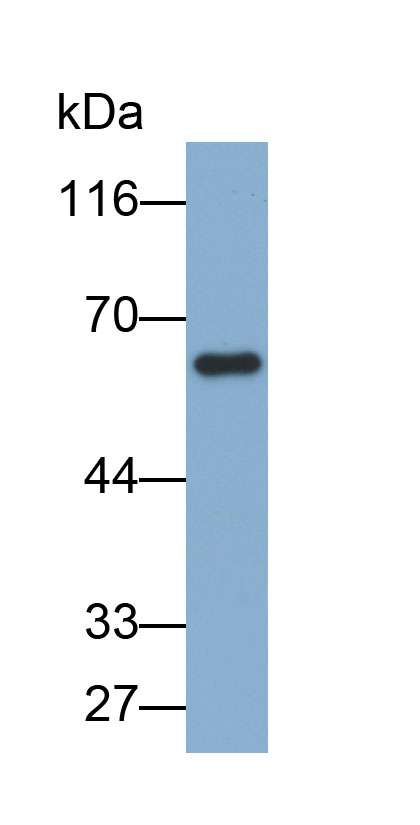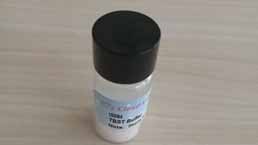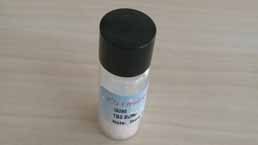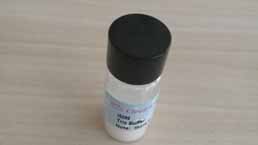Biotin-Linked Polyclonal Antibody to High Molecular Weight Kininogen (HMWK) 

Williams-Fitzgerald-Flaujeac Factor; Fitzgerald Factor; HMWK-Kallikrein Factor
Overview
Properties
- Product No.LAB805Ra71
- Organism SpeciesRattus norvegicus (Rat) Same name, Different species.
- ApplicationsWBIf the antibody is used in flow cytometry, please check FCM antibodies.
Research use only - Downloadn/a
- CategoryEnzyme & KinaseHematology
- SourceAntibody labeling
- Ig Type IgG, Potency n/a
- PurificationAntigen-specific affinity chromatography followed by Protein A affinity chromatography
- LabelBiotin
- Original Antibody PAB805Ra01-Polyclonal Antibody to High Molecular Weight Kininogen (HMWK)
- Buffer Formulation0.01M PBS, pH7.4, containing 0.05% Proclin-300, 50% glycerol.
- TraitsLiquid, Concentration 500µg/mL
Sign into your account
Share a new citation as an author
Upload your experimental result
Review

Contact us
Please fill in the blank.
Specifity
The antibody is a rabbit polyclonal antibody raised against HMWK. It has been selected for its ability to recognize HMWK in immunohistochemical staining and western blotting.
Usage
Western blotting: 0.01-2µg/mL;
Optimal working dilutions must be determined by end user.
Storage
Store at 4°C for frequent use. Stored at -20°C in a manual defrost freezer for two year without detectable loss of activity. Avoid repeated freeze-thaw cycles.
Stability
The thermal stability is described by the loss rate. The loss rate was determined by accelerated thermal degradation test, that is, incubate the protein at 37°C for 48h, and no obvious degradation and precipitation were observed. The loss rate is less than 5% within the expiration date under appropriate storage condition.
Giveaways
Increment services
Citations
- Factor XII–mediated contact activation related to poor prognosis in disseminated intravascular coagulationPubMed: 26706311
- Factor XII-mediated contact activation related to poor prognosis in disseminated intravascular coaCavia (Guinea pig )lationPubmed:26706311
- Contact system activation and high thrombin generation in hyperthyroidism.pubmed:28137735
- Contact system activation in disseminated intravascular coagulation: activities of prekallikrein and high-molecular-weight kininogen are significant risk factorsPubmed:34993714













